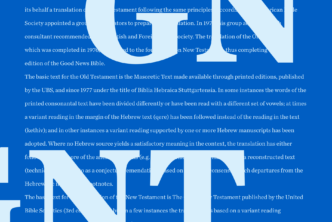The languages of the world are often represented in a family-tree diagram in which “parent” languages such as Proto-Slavic branch out into “child” languages such as Russian, Polish, and Croatian. Just as in real-life human lineages, the parents may die, but they live on in their offspring.
Image © Minna Sundberg, Hivemill
The family tree is a helpful model, but as with many models, the reality is far more complicated. That’s because some “parents”—and even “grandparents” are still living, though in altered form, long after even some of their “grandchildren” have died. And languages are not self-contained or hermetically sealed. The influence of a parent on a child doesn’t end when the child is “born.” And other languages can mess with its “genes” even after the child has grown up.
We’re accustomed to recognizing that individual words cross language boundaries. We say capeesh and apparatchik and tsunami; and my feel is that those words still carry with them the rich fragrances of Italian, Russian, and Japanese, respectively. Half the fun of using those words is that we’re borrowing other people’s stuff. And other languages borrow our stuff, too. I did a double-take the first time I heard a Spanish speaker use “Okay” in the middle of an otherwise fully Spanish sentence.
Because of the vagaries and contingencies of history (though all these are within God’s good and all-powerful hands), languages even make repeated cross-border incursions. The French phrase avant-garde has come into English twice. First it came in a literal sense in the late 1400s: vanguard, as in the first troops in the line, the “advance guard.” Then around the turn of the 20th century it came again in a metaphorical sense, meaning “art which pushes cultural boundaries.”
There have even been times when words leave one language and come back to that language in a different form. This actually happened with Greek, which is not a surprise given the major influence Greek has had on the world scene: Greek gave κίνημα (kinema, “movement”) to French as cinema[tographe], and when the Greeks found out how much fun the cinema was, they took their own word back as σινεμά (sinema). (ix)
Isn’t language cool?!
Knowing How Language Works
I write all this because of a burden I have for all Bible interpreters: you need to develop a feel for how languages come into being and how they develop before you can trust yourself to use New Testament Greek responsibly. I don’t mean you need to know all the etymologies of the Greek words of the New Testament; I actually think you need to be studiously ignorant of those etymologies—just as Κοινή speakers were. But if you will start to grasp in general how Κοινή Greek formed, you’ll be less likely to treat New Testament Greek the way some Christians have: as a special Holy Spirit language not beholden to the normal rules of human written communication.
I’ve been reading up a little on the history of Greek, and at least one scholar with expertise in the field believes that as much as 50% of Κοινή vocabulary is non-native. Just like English, ancient Greek was a big time borrower of other people’s stuff (18–19)—and for some of the same reasons English is. This same scholar believes that two major forms of linguistic influence operated on Greek: 1) “substrate” influence and 2) cultural contact.
Substrate Influence
When conquerors arrive in a new land, they may not have words for the local flora, fauna, and they won’t necessarily care to invent brand new place names for every city, brook, and hill. So they borrow all those terms from the so-called “substrate” languages, those spoken by conquered or minority people groups. This appears to have happened in Greek. (19)
And in English. There are no “opossums” outside North America; the word was introduced into English during the opening years of the Jamestown settlement in Virginia (1607–1611). Where did these earliest Americans get the word “opossum”? From the local Algonquian tribal people’s word “opassom,” which meant white (“op”) dog (“assom”).
But when you comment on a dead opossum on the side of the road, do you ever intend to communicate anything about Algonquian? Do you have any conception in your mind, at that moment, of white dogs? Never. You just use the word that comes to mind, unselfconsciously and straightforwardly. If anything, “opossum” (or, rather, “‘possum”) may conjure up a few feelings about the redneck South, but not anything about the first peoples of Virginia.
It is wrong, therefore, to look at any of the Greek words in the New Testament and try to push them back to a time before they became what they were for the New Testament writers—let alone to push them forward to what they became some time afterwards! Ἀγωνίζομαι didn’t mean “agonize” to Paul; that’s what the word has become for us. No, ἀγωνίζομαι meant to Paul what it meant in the mouths and pens of his contemporaries: “compete” (athletically) or “fight” (and by metaphorical extension, “struggle”).
Nor did it necessarily mean to Paul whatever it meant before his time. BDAG tells you at the end of each entry whether or not a given word can be found in “DELG,” Pierre Chantraine’s Dictionnaire étymologique de la langue grecque. You can now freely look up any entry in that etymological dictionary, including the one regarding ἀγωνίζομαι. There’s plenty of interesting information there that a creative person willing to brave the French could use for a sermon or Bible study lesson. For example, the root word ἀγών, DELG says,
means the result of an ἀγείν and serves properly to mean “assembly, gathering.” Homer uses it of the assembly of the gods…, [and] the gathering of ships. But the most frequent sense in Homer and later convention is assembly for games, and, by extension, combat.*
So when Jesus says, “Strive (Ἀγωνίζεσθε) to enter through the narrow door” (Lk 13:24), what he really means is that the assembly of the gods will gather people like ships to the gate of the kingdom where they will then compete for entrance…
Don’t laugh. I’ve heard this sort of thing done in real life. I can’t honestly tell you that ἀγωνίζομαι is the result of “substrate influence” (I was not able to find out with certainty), but it’s still an instructive example, I hope, of a word that meant what it meant to Paul, not what it meant to Homer—or to Ari Onassis.
As Moisés Silva said in his introduction to the New International Dictionary of New Testament Theology and Exegesis,
Prior meanings, if different from contemporary usage, are irrelevant unless there is reason to believe that the speaker/hearer is aware of them. (1:9)
Cultural Contact
For a discussion of cultural contact, check back for part two of this blog essay.
Conclusion
For now, I invite you to do three things:
- Run this search for all forms of ἀγωνίζομαι in the NT; and take a quick look at two of the seven contexts in which it is used, Luke 13:24 and 1 Cor. 9:25. I’m going to examine these more closely in a future post, but note how the context in each verse clearly calls up one sense or the other of ἀγωνίζομαι. Note, also, how each context limits the possible meanings of the verb. No ships, no gathering, no white dogs.
- Buy the Brill Greek Reference Collection if you feel you are ready to use etymologies responsibly; or read Calvin and the Biblical Languages if the complexity and difficulty of a post like this has almost dissuaded you from trying to study Greek or Hebrew at all.
- Place both hands on your computer screen (or tablet or phone, if they’ll fit) and, if you haven’t already done so, absorb via Internet osmosis the deep interest in language that I can’t help but have. I’ve got interest to spare, and I hope you will, too. Language really is so cool.
*I confess that my French translating skills may not be up to par; that’s part of my point. Ignorance of what’s really going on in language can be a poisonous temptation to creative persons.





